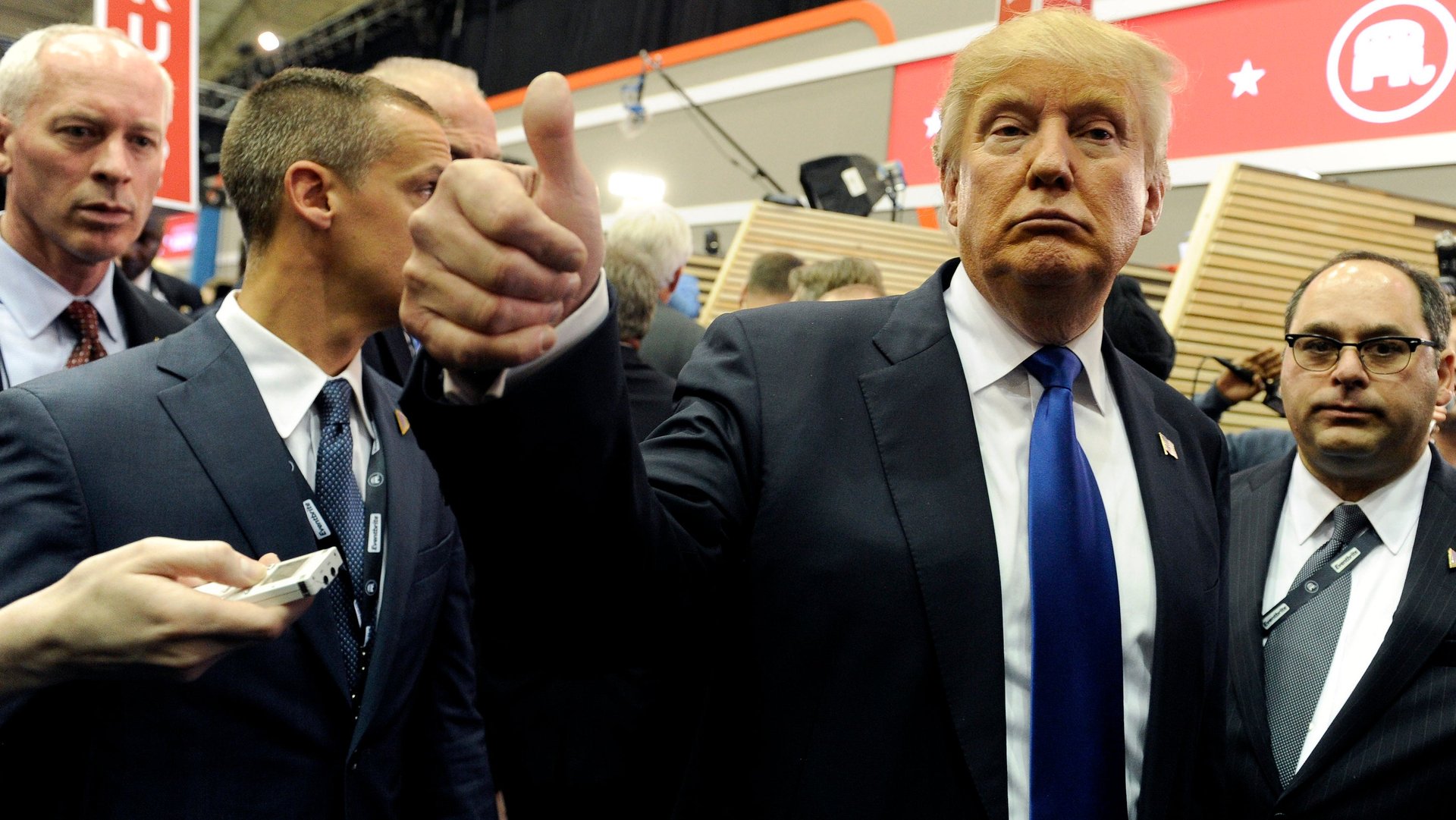Donald Trump’s fans may be influenced an evolutionary strategy called “prestige bias”
Donald Trump no longer seems funny. The Republican presidential candidate delights in vicious attacks and stupidities that would derail any other candidate. But his shameless indifference to truth has apparently made him impervious to criticism. Given that Trump is so awful–so bereft of genuine ideas, intelligence, and basic human decency–how can we explain his emergence as the increasingly likely GOP nominee?


Donald Trump no longer seems funny. The Republican presidential candidate delights in vicious attacks and stupidities that would derail any other candidate. But his shameless indifference to truth has apparently made him impervious to criticism. Given that Trump is so awful–so bereft of genuine ideas, intelligence, and basic human decency–how can we explain his emergence as the increasingly likely GOP nominee?
There are a number of possible theories to explain the Teflon Don. Many Americans are disillusioned with mainstream politicians and view him as an outsider candidate. Many others are filled with despair at the state of the United States economy. Trump’s very failure to offer specific policy proposals may allow people to project any fantasies they like onto him. And his scapegoating of minorities offers the white working class, which has seen real wages fall and unemployment rise, a target for their anger.
In addition to all of these factors, there is a psychological mechanism that can help us understand Trump’s appeal to some voters. It’s known as prestige bias.
Trump is a very wealthy man. Going by that primary indicator, that means he is a successful person. But all kinds of things can play a role in causing success. Sorting out what has made a person prosperous and what factors merely correlate with their prosperity is notoriously difficult. So rather than mimic certain behaviors of successful people, we are disposed to imitate them broadly. This raises the probability that we will land upon the behavior that has made them successful and become successful ourselves.
Prestige bias may help explain why celebrities are often paid to endorse consumer goods. No one consciously believes that wearing the same scent as Gwyneth Paltrow or the same watch as Brad Pitt will lead to movie contracts, money, or sexual desirability. But we might nevertheless look more favorably on the products they endorse because they are prestigious individuals.
Similarly, Trump–a “successful” businessman who constantly emphasizes his wealth–puts forward ideas that he claims are solutions for the problems confronting the white working class. Prestige bias may dispose them to give his words much more weight than they deserve.
It is worth noting that low-information individuals–people with limited resources or education to help them identify what factors actually explain the success of individuals–seem to be especially susceptible to prestige bias. That makes evolutionary sense. If imitation is relatively low cost to individuals, then it is smart to copy behaviors broadly, even if for every behavior copied there is only a small chance of thereby achieving success.
If prestige bias explains some of Trump’s attractiveness, we ought to see stronger support for him among the less educated and less wealthy. And that’s precisely what we observe. No doubt many factors, both rational and irrational, explain why people consider voting for Trump. But prestige bias may be part of the explanation of how he’s managed to pull so far ahead in the Republican race.